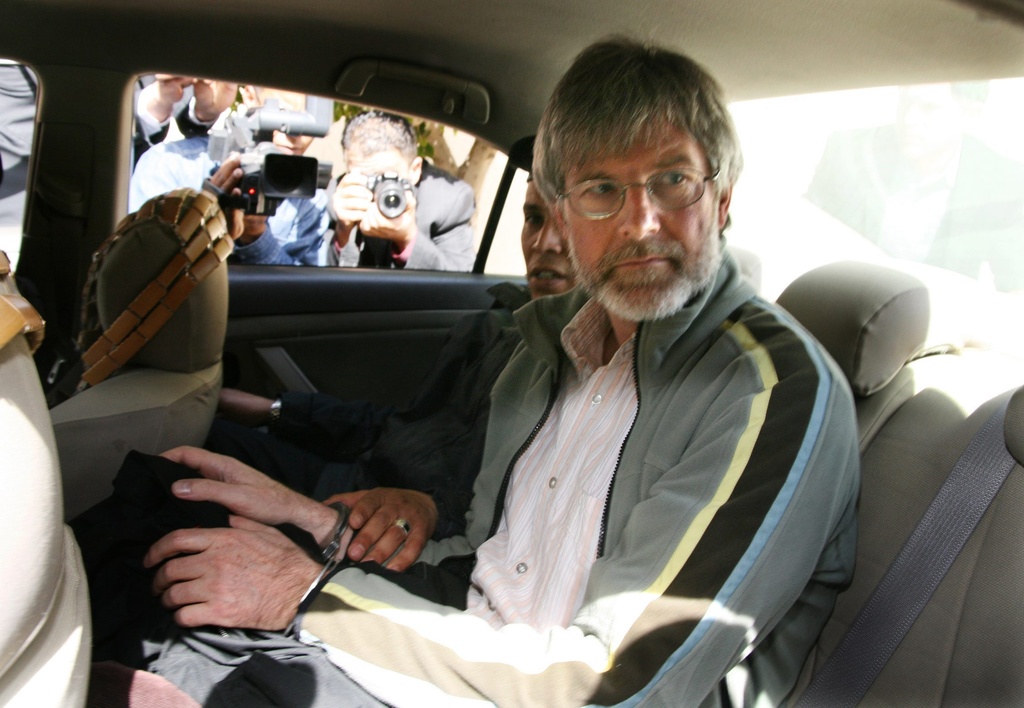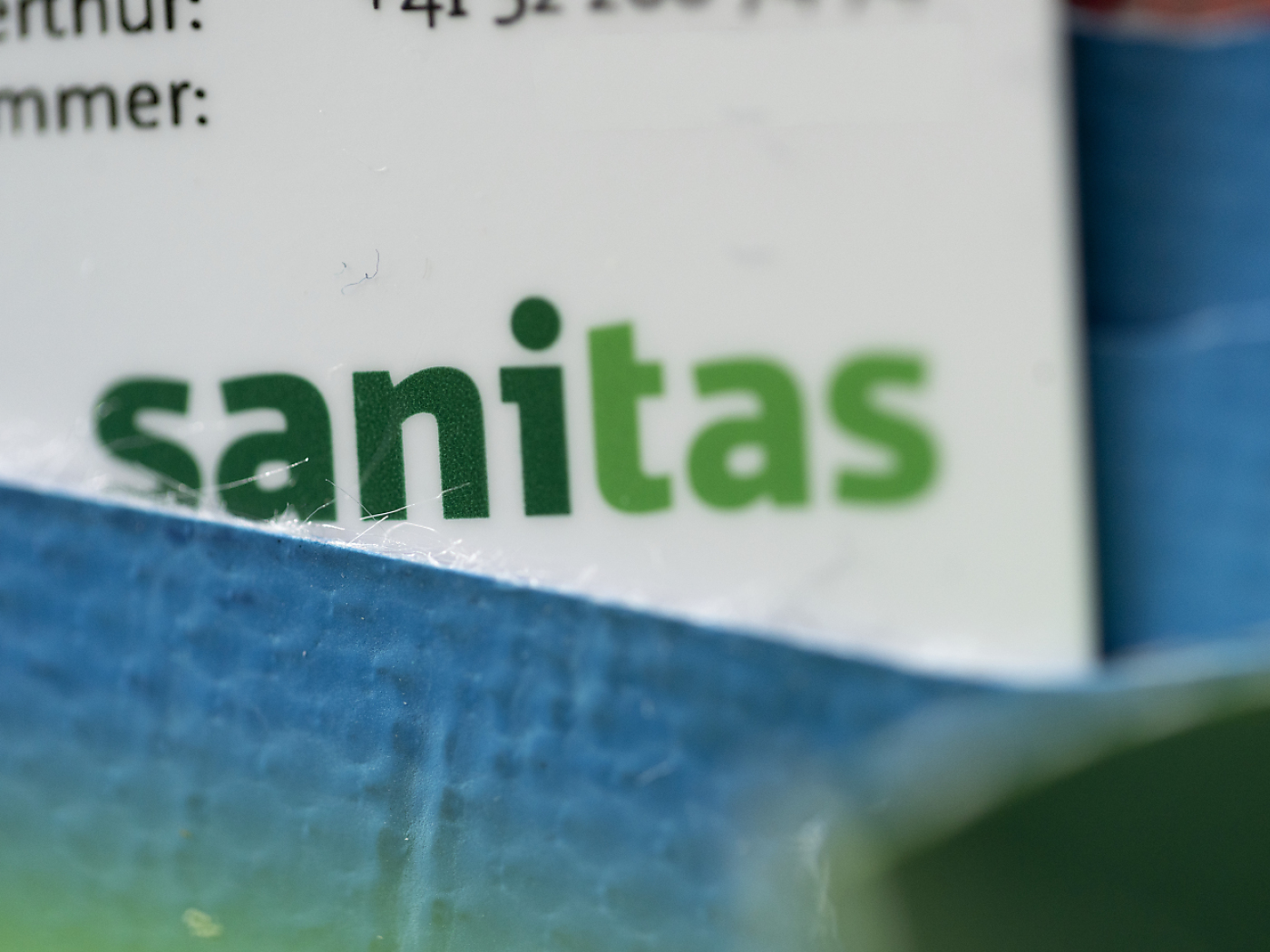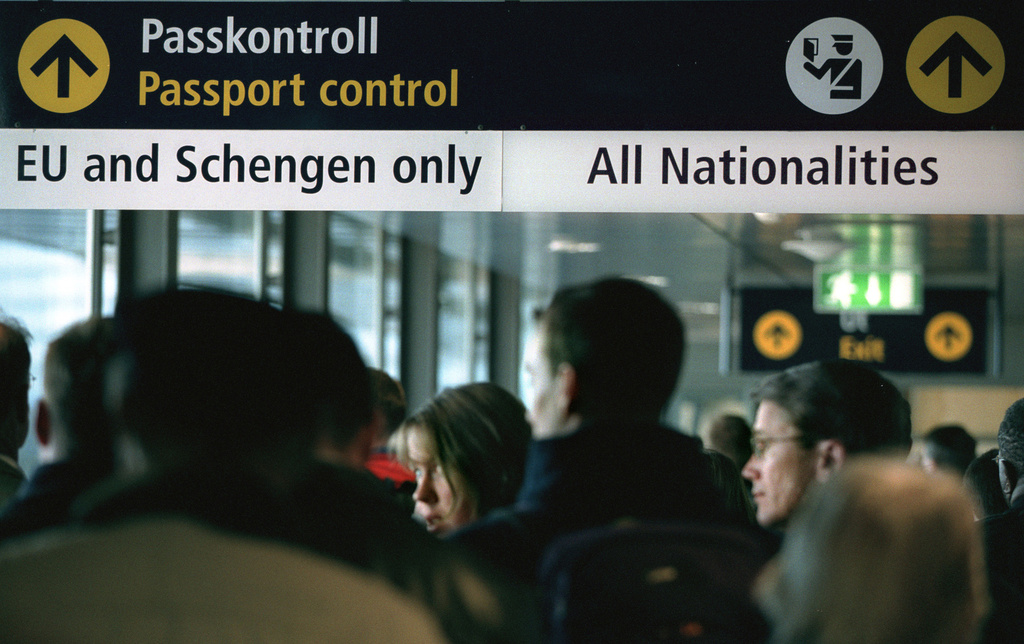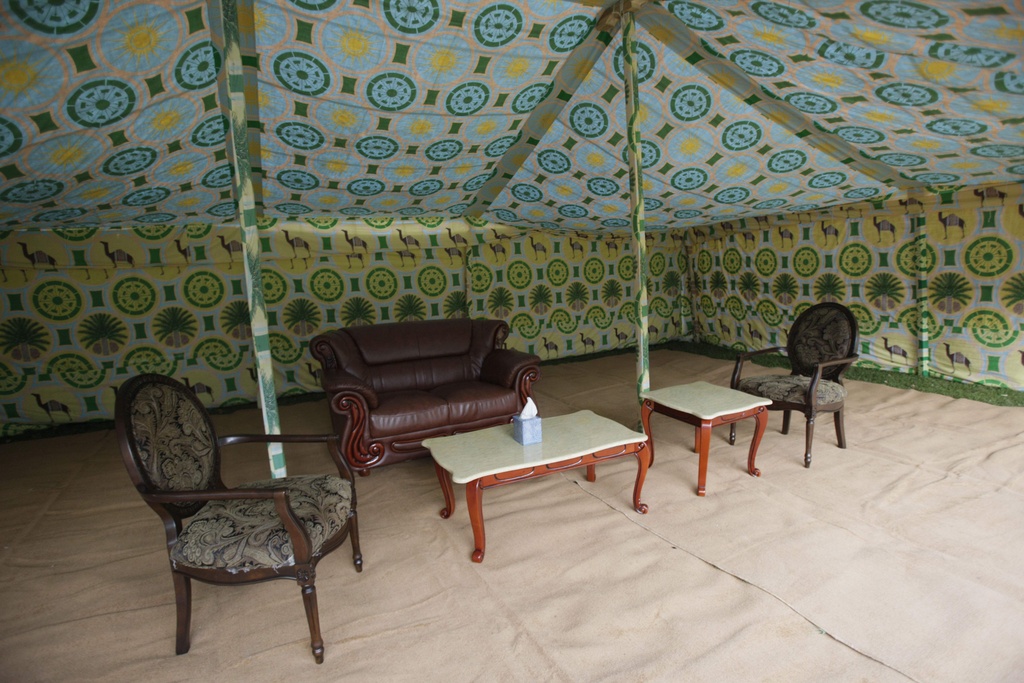Swiss businessman heads to Libyan jail

One of two Swiss nationals held in Libya for the past 18 months has left the Swiss embassy in Tripoli to start a four-month jail sentence.
Businessman Max Göldi handed himself over to the authorities on Monday afternoon and was taken to prison in handcuffs.
Rachid Hamdani, the other Swiss national who had been held with Göldi, left for Tunisia after receiving documents allowing him to leave the country, according to Salah Zahaf, a lawyer for both men.
Göldi’s surrender avoided escalating a confrontation that has drawn in governments across Europe.
In Brussels, Austrian Foreign Minister Michael Spindelegger said the police had threatened to storm the embassy if Tripoli’s ultimatum to hand over the two men was not heeded, and many European Union ambassadors had gone to the building “to show solidarity”.
Libyan Foreign Minister Moussa Koussa said Göldi would be treated well. Hamdani’s whereabouts were unknown on Monday afternoon but he was believed to have been escorted to the Tunisian border by Spanish diplomats.
Hamdani’s wife Bruna told swissinfo.ch that she was following events via news bulletins, and had not heard anything officially.
“I am still waiting for news from Bern or from my husband. They are the only certain sources. After 19 months, I will only believe it when he himself calls to tell me that he is not in Libya.”
“But we should not forget that there is someone who will be staying there [Max Göldi] and that is still sad. So I am remaining cautious for the moment,” she said.
The Swiss foreign ministry confirmed Göldi had been taken into Libyan custody and Swiss embassy and diplomatic representatives of the EU were in permanent contact with him. The ministry could not confirm whether Hamdani had left the country.
Ultimatum
Libyan security forces surrounded the Swiss embassy in Tripoli after issuing an ultimatum for Switzerland to hand Göldi over by midday local time. Several dozen officers had formed a ring around the building where he and Hamdani had taken refuge for several months.
Spindelegger, attending a meeting of EU foreign ministers, said a further escalation of the row had been avoided. “Last night there were many intense phone calls,” he told reporters. “It was announced there was a deadline – either hand over the convicted Swiss citizens or the embassy would be stormed.”
The case of the two men has been at the centre of a fierce diplomatic row between Libya and Switzerland which resulted last week in Tripoli suspending visas to citizens of most European countries.
The night before, Koussa summoned European Union ambassadors to hand them the ultimatum on Göldi.
“No embassy should become a haven from justice,” Koussa told the Associated Press late on Sunday. “I hope this will not force us to adopt other measures.”
No details were given of what action the Libyan authorities planned to take.
Human rights
The diplomatic row between Libya and Switzerland stems from the 2008 arrest of one of leader Moammar Gaddafi’s sons in Geneva.
The Libyans had prevented both Swiss nationals from leaving the country since July 2008. Zahaf said he would apply to Libya’s top judicial officials for clemency.
Both had faced trials for visa violations and conducting business in the country illegally. Hamdani had been acquitted of the first charge on appeal, and found not guilty of the second. Göldi’s initial sentence of 16 months on the visa charge was reduced to four on appeal. He was fined on the second charge.
Human rights groups have sharply criticised Libya, calling Göldi’s sentence politically motivated.
“Although Libya says it is a judicial matter, the crisis must be resolved by diplomacy,” said Heba Morayef of Human Rights Watch (HRW).
The Ain Zara prison where Goldi is to carry out his sentence is notorious for the arbitrary detention of political opponents, HRW reported last December.
The group says that one of the prison’s two wings is controlled by Libya’s state security service, which is outside the influence of the justice ministry.
Göldi will reportedly be placed in the other wing. Zahaf said on Monday he would be able to visit him at any time, and that he would have access to medical care.
swissinfo.ch and agencies
July 15, 2008: Hannibal Gaddafi and his wife are arrested and charged with abusing their staff. They are released on bail and leave Switzerland. The servants are later compensated and charges withdrawn.
July: Swiss nationals Max Göldi and Rachid Hamdani are arrested. Swiss businesses are forced to shut their offices and the number of flights to Tripoli is cut.
January 2009: A diplomatic delegation travels to Tripoli.
May: Swiss foreign minister visits Libya.
June: Libya withdraws most assets from Swiss bank accounts.
August: The Swiss president apologises in Tripoli for the arrest.
September: Göldi and Hamdani cannot leave the country despite a promise they would be freed by September 1.They disappear after undergoing a medical check-up in Tripoli.
October: A 60-day limit for normalising relations passes.
November: Swiss ministers say they will pursue visa restrictions for Libyans. On November 30 Göldi and Hamdani sentenced to 16 months in prison and fined for visa violations.
January 2010: Their terms are overturned and cut.
February 14: A Libyan newspaper reports Switzerland has drawn up a blacklist of 188 top Libyans.
February 15: Libya stops issuing visas to citizens of nations in the Schengen zone.
February 17-18: Swiss, Libyan, Italian, Spanish and Maltese foreign ministers try to hammer out a solution.
February 22: Göldi ordered to report to prison. Libya says it will retalitate if Switzerland does not hand him over. Hamdani obtains an exit visa.

In compliance with the JTI standards
More: SWI swissinfo.ch certified by the Journalism Trust Initiative












You can find an overview of ongoing debates with our journalists here . Please join us!
If you want to start a conversation about a topic raised in this article or want to report factual errors, email us at english@swissinfo.ch.